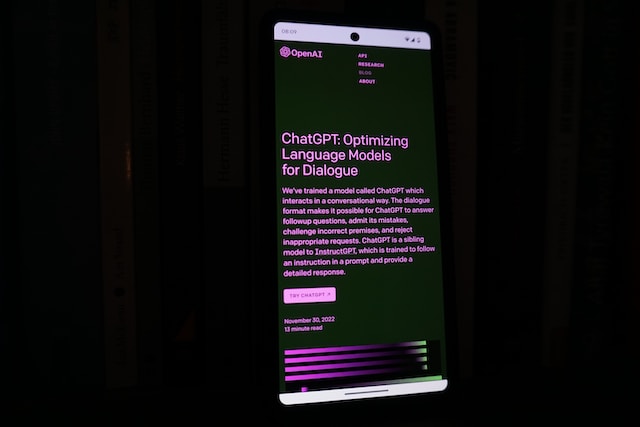Potential Bankruptcy Looms for OpenAI in 2024

The financial future of OpenAI appears to be in jeopardy, with signs indicating that the company might face bankruptcy by the close of 2024. When OpenAI initiated the process of trademarking ‘GPT’, it marked what could be the onset of a downward spiral for the organization. There’s mounting evidence that many users are gradually shifting away from GPT products.
One of the early indicators was the decline in user activity on the ChatGPT website during June, as compared to the previous month, May. While one speculation attributed this to students being out of school for the summer break, an alternative theory revolves around the release of the ChatGPT API. This release encouraged users to deviate from OpenAI’s initial offering and create their own personalized bots. The downward trend continued into July, with SimilarWeb reporting a 12% month-on-month drop from 1.7 billion users in June to 1.5 billion users in July. These figures, however, exclude API usage.
According to a user on X, API cannibalization is one important factor affecting the decline. Many companies are now barring employees from using ChatGPT directly for work-related tasks, but they still leverage the ChatGPT API to integrate the vast language model into diverse workflows.
But there are other explanations for OpenAI, too
Beyond the aforementioned reasons, the decline in the user base cannot solely be attributed to the API. The rise of open-source large language models is another contributing factor. For instance, Meta’s Llama 2, in collaboration with Microsoft, is empowering users to utilize the model for commercial purposes. Unlike OpenAI’s paid, restricted offering, Llama 2 provides an easily modifiable alternative, proving superior in certain applications compared to GPT. Startups are already making the transition from proprietary models to Llama 2, indicating a shift in preference.
An intriguing aspect to note is the transition from a non-profit entity to a for-profit company, despite CEO Sam Altman not having equity in the organization. The journey towards profitability has been slow, as evidenced by its mounting losses. The company reported a doubling of losses to $540 million since the inception of ChatGPT in May.
Considering OpenAI’s profitability in the broader context, AI-leading companies like Anthropic and Inflection are not yet poised for successful initial public offerings (IPOs), as stated in a recent Investopedia report. The report suggests that a successful IPO requires a decade of operation and at least $100 million in revenue.
OpenAI’s financial stability currently relies on Microsoft’s $10 billion investment. However, Its projection of reaching an annual revenue of $200 million in 2023 and aiming for $1 billion in 2024 seems ambitious given its ongoing losses.
OpenAI’s move towards a paid model might have generated revenue, largely from API sales and adoption of products like the GPT-4-based chatbot and DALL-E2. Nevertheless, the financial landscape remains unclear.
In the event of the firm pursuing an IPO focused on large language models, acquisition by larger corporations could be a potential exit strategy for investors. As employees potentially migrate to competitors, the firm continues to hire new talent at attractive salaries and expand its presence, including offices in London.
CEO Sam Altman acknowledged the substantial operational costs of running an AI company like ChatGPT. Consequently, monetization measures were implemented. The report reveals that ChatGPT costs around $700,000 per day to operate, with these costs largely borne by Microsoft and recent investors.
Musk pressure
The landscape of AI competition has shifted with Elon Musk’s xAI entering the fray. This new player in the field has redirected the conversation from OpenAI’s primary competitors being Google or Meta. Musk’s aspiration to create a politically unbiased chatbot, “TruthGPT,” has garnered interest and even led to his acquisition of 10,000 NVIDIA GPUs.
Complicating matters is the global shortage of GPUs, limiting OpenAI’s ability to further develop and enhance their models. OpenAI’s recent trademark filing for ‘GPT-5’ underscores the company’s intent to continue model training, although this has seemingly contributed to a decline in the quality of ChatGPT’s output.
Unless OpenAI secures additional funding promptly, the company’s future appears uncertain. A potential bankruptcy filing by the end of 2024 looms, as OpenAI anticipates the availability of NVIDIA GPUs in the second quarter of the year to reinitiate model training. The road ahead remains challenging as the company contends with mounting challenges, including user decline, financial losses, legal issues, and diminishing quality.
FAQ
Q: Can I use OpenAI for free? A: OpenAI offers a range of products and services, some of which may have free tiers or trials. However, many of their advanced features and capabilities typically come with a cost. It’s best to visit the OpenAI website or contact their support to get the most up-to-date information on pricing and free offerings.
Q: What is in OpenAI? A: OpenAI is an organization focused on artificial intelligence research and development. They have worked on various projects, including language models like GPT-3, which can generate human-like text based on the input it receives. OpenAI also develops technologies for tasks like text generation, language translation, code writing, and more.
Q: What is the replacement for OpenAI? A: As of my last knowledge update in September 2021, there isn’t a direct “replacement” for OpenAI. OpenAI is a unique organization known for its contributions to AI research and the development of language models. While there are other AI research organizations and companies in the field, each has its own focus and areas of expertise.
Q: Which is better, OpenAI or Google? A: Both OpenAI and Google are prominent players in the field of artificial intelligence, but they have different strengths and areas of focus. OpenAI is known for its language models and contributions to natural language processing, while Google has a wide range of AI-related products and services, including search algorithms, AI research, and tools like TensorFlow. The choice between OpenAI and Google depends on your specific needs and the tasks you’re looking to accomplish.




